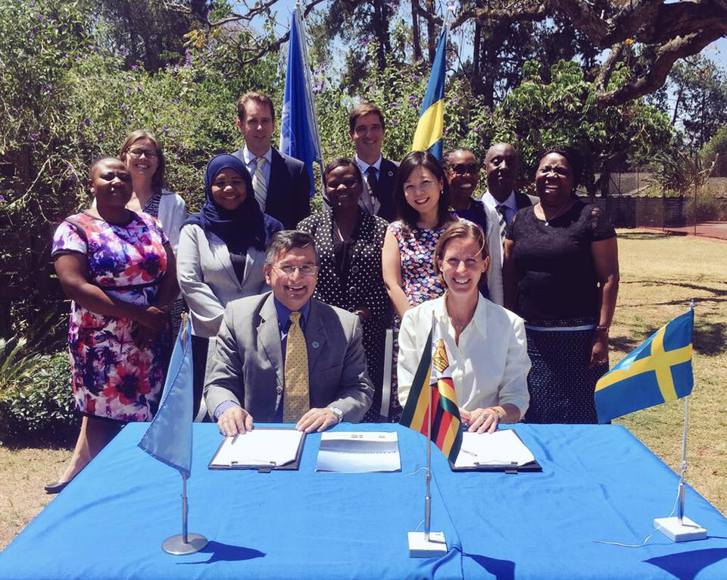On 29 October, the Swedish Embassy signed a new three-year agreement with the UN Resident Coordinator's Office (RCO) in Zimbabwe. The new agreement will strengthen UN coordination in the implementation of the global goals, as well as contribute to a more efficient and more consolidated UN in ZImbabwe.

Sweden's contribution will improve the UN's capacity to effectively coordinate and implement the global goals in Zimbabwe. Support for a stronger and more effective UN is well in line with the ongoing reform of the UN, stated the UN Resident Coordinator Zimbabwe, Mr. Bishow Parajuli.
In connection with the new agreement, the Embassy organized a well attended workshop on the UN Reform Agenda, together with the UN Resident Coordinator (RC), Mr. Bishow Parajuli and other UN Heads of Missions in Zimbabwe.
During the workshop, implementation of the reform agenda at country level was eagerly discussed and debated. The new increasingly independent role of the Resident Coordinator's office was also up for discussion - as was the need for improved UN coordination for the implementation of the global goals.
Ambassador Sofia Calltorp talked about Sweden's main priorities for the reform of UN operations, highlighting the rights perspective, aid effectiveness, climate, gender equality, and the importance of reaching the most vulnerable and poorest:
A reinforced and reformed UN is a central issue for Sweden. Not only for the implementation of the global goals, but also for maintaining the relevance and legitimacy of the UN in an increasingly fragmented world, where the need for a strong UN is greater than ever, Sofia Calltorp explained.
Mette Sunnergren, Sweden's Head of Development Cooperation in Zimbabwe, also highlighted the thematic areas that Sweden regards as priorities for the UN's operations in Zimbabwe - including, but not limited to, gender equality, peace and conflict prevention, building resilience to prevent need for humanitarian support, as well as increased transparency and the fight against corruption.